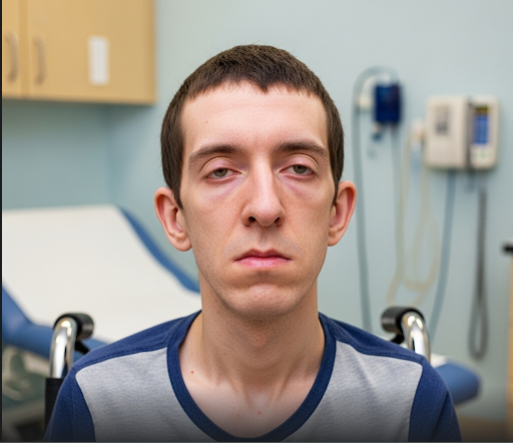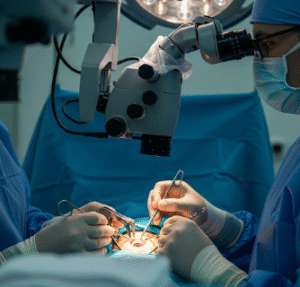Overview
Kearns-Sayre Syndrome (KSS) is a rare, progressive mitochondrial disorder that affects multiple systems of the body. It primarily impacts muscles, the eyes, and the heart. The syndrome usually begins before the age of 20 and is characterized by a triad of symptoms including progressive external ophthalmoplegia, pigmentary retinopathy, and cardiac conduction defects. Korea offers specialized genetic and mitochondrial disorder clinics with advanced diagnostic and multidisciplinary treatment options for KSS patients.
What Is Kearns-Sayre Syndrome?
KSS is a mitochondrial cytopathy caused by deletions or mutations in mitochondrial DNA (mtDNA). This impairs energy production in cells, particularly affecting tissues with high energy demands such as muscles and nerves. It belongs to a group of mitochondrial diseases and is distinguished by a set of characteristic clinical features involving the eyes, heart, and nervous system.
Symptoms
- Progressive external ophthalmoplegia (weakness or paralysis of the eye muscles causing drooping eyelids and limited eye movement)
- Pigmentary retinopathy (a progressive degeneration of the retina leading to vision problems)
- Cardiac conduction abnormalities, including heart block which may cause fainting or sudden cardiac arrest
- Muscle weakness and fatigue
- Hearing loss
- Ataxia (poor coordination)
- Endocrine abnormalities such as diabetes or thyroid dysfunction
- Short stature and developmental delays in some cases
Causes
Kearns-Sayre Syndrome is caused by large deletions or mutations in mitochondrial DNA. These mutations disrupt the mitochondria’s ability to produce energy, leading to cell dysfunction and the multisystemic symptoms observed.
Risk Factors
- Family history is generally uncommon as most cases are sporadic, but mitochondrial DNA mutations can be inherited
- Early onset before age 20
- No clear environmental risk factors identified due to genetic nature
Complications
- Progressive vision loss and potential blindness
- Severe heart conduction defects requiring pacemaker implantation
- Respiratory failure due to muscle weakness
- Neurological decline impacting quality of life
- Endocrine disorders complicating systemic health
Prevention
As a genetic mitochondrial disorder, there is no known prevention for Kearns-Sayre Syndrome. Genetic counseling is recommended for affected families to understand risks.
Treatment Options in Korea
- Symptomatic and Supportive Care: Addressing muscle weakness, vision problems, and endocrine abnormalities.
- Cardiac Management: Regular cardiac monitoring with ECG and Holter monitoring; pacemaker implantation for conduction defects when necessary.
- Physical Therapy: To maintain muscle strength and mobility.
- Multidisciplinary Approach: Involving neurologists, cardiologists, endocrinologists, and geneticists in specialized Korean medical centers.
- Advanced Diagnostic Tools: Mitochondrial DNA testing and muscle biopsy to confirm diagnosis.
- Research and Clinical Trials: Korea is active in mitochondrial disease research offering potential access to emerging therapies.













